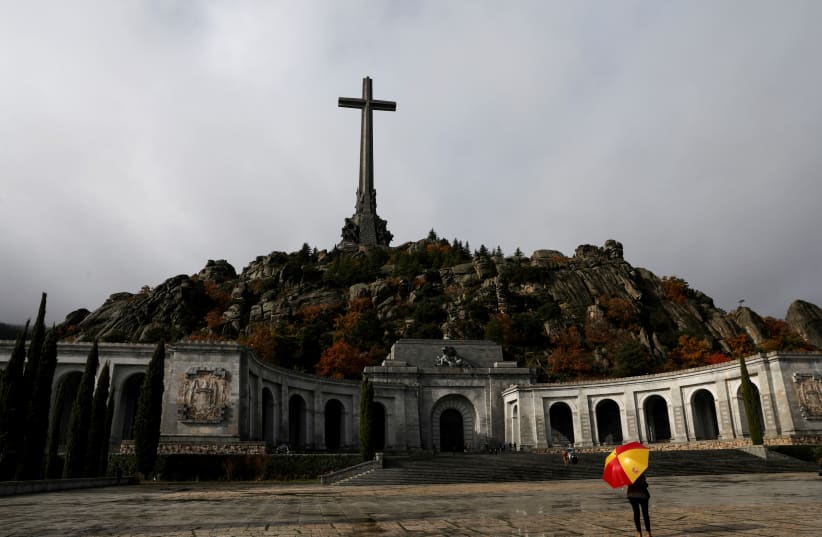Amid tight security and in virtual secrecy, his coffin will be taken from the Valley of the Fallen and reburied in a private family vault, transported either by helicopter or, if bad weather intervenes, by guarded motorcade.
"It's intensely symbolic for Spain," said political scientist Pablo Simon, "because the (Franco) monument has always been connected to those who miss the old regime."
With media prohibited, the exhumation ceremony will be witnessed by a select few: Justice Minister Dolores Delgado, a forensics expert, a priest, and 22 of Franco's descendants.
They include his oldest grandson Francisco Franco, who labeled the operation - and its low-key nature - a political ploy by the governing Socialist Party.
"I feel a great deal of rage because they have used something as cowardly as digging up a corpse, using a body as propaganda and political publicity to win a handful of votes before an election," he told Reuters late on Wednesday.
In government since mid-2018 and facing a national election next month, the Socialists have long sought to exhume Franco, who unleashed the civil war that killed around 500,000 people between 1936 and 1939.
They won backing for the decision to move his remains from a divided parliament, and the Supreme Court ratified it last year after dismissing a challenge from Franco's descendants.
The government estimates the move will cost up to 63,000 euros ($70,000).
"Exhuming the dictator's body suggests that the Valley of the Fallen's significance could be reclaimed, a normal process within democracies like ours," Simon said.
BURIED BESIDE HIS VICTIMS
Although Franco died in 1975, divisions within Spain over his removal from the Valley of the Fallen remain acute.
An El Mundo poll this month showed 43% of Spaniards favored the operation, while 32.5% opposed it. On Monday, government sources said some of the companies involved in the exhumation had received threats.
Franco's admirers saw him as a firm hand who fostered Spain's longest period of peace after centuries of turmoil.
Opponents, meanwhile, have long questioned the propriety of a dictator being buried alongside his victims. Thousands of dead Republicans were moved into the valley without their families' consent, while the complex itself was partially built using the forced labor of political prisoners.
The latter include 93-year-old retired historian Nicolas Sanchez-Albornoz.
"It was time (to move him). It was overdue," he told Reuters in an interview on Wednesday.
"We've waited many decades for (Franco) to disappear from this monument, which ... was the shame of Spain. All the dictators of Franco's ilk have vanished from Europe - Hitler, Mussolini - and were not honored with such tombs."
Far-right party Vox has capitalized on the frustrations of those supporting Franco's legacy, performing better than many expected in national elections in April, and considers policies barring discussion of it from public life as revisionist.
But, as the next election looms on Nov. 10, Simon said he believed the left could exploit divisions over the exhumation within the moderate right-wing parties, which abstained from the parliamentary vote on the issue.
"The (conservative) Partido Popular prefers not to discuss (the exhumation) because it could hurt their electoral interests," he said.
"It could spark a sort of cultural war between the PP and Vox, one of the most disputed and porous frontiers in this election."
